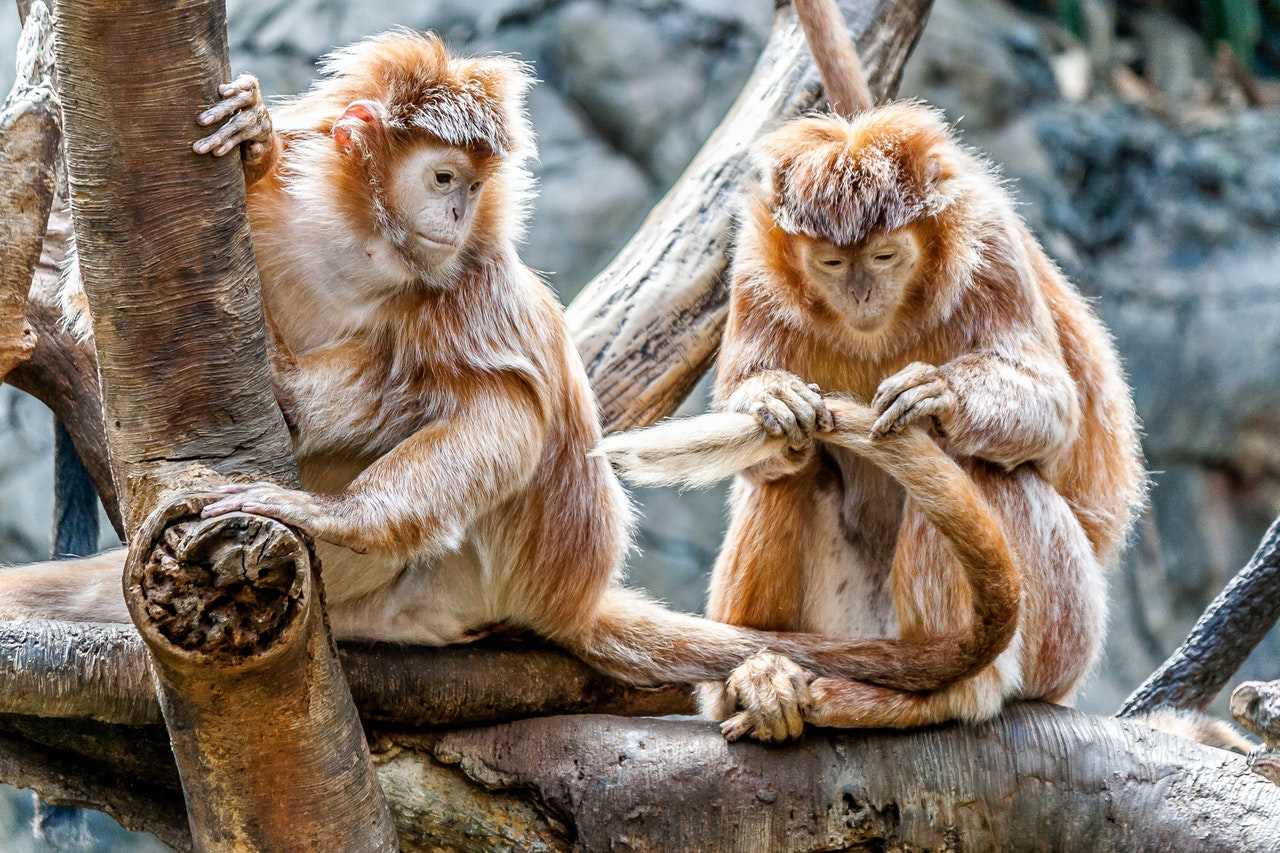

Are you grooming enough?
We smile a little uncomfortably at each other. We're not used to this from each other, are we? Had we ever given each other an elbow before? Had we ever given each other a fist before? You name it. And didn't we give each other three kisses 'before'? Uncomfortable and awkward is how it feels now.

Daniel Seesink
Keynote speaker | Behavior from apes to humans | ObserverI can hardly imagine that not so long ago we shook hands during our encounters. That we gave each other three kisses when we arrived and when we left. That we sat close to each other on the bus or subway.
Do you remember when we were faced with the concept of social distancing? What I just described is an example of that. But distancing goes beyond not physically greeting each other anymore. Introduced in the ’00s and ’10s of this century with some skepticism and resistance, the ’new way of working‘ or ‚working from home‘ is now slowly being embraced. What is now called „hybrid working“ leads to an increase in physical distance, alienation from the work environment and from colleagues with whom you otherwise had a brief conversation at the coffee machine. We miss those brief encounters. Or more specifically, our brains miss those short, physical encounters, often without us being aware of it.
With each encounter, our pituitary gland produces the hormone oxytocin. This hormone directly causes us to feel bonding with the other person. And oxytocin has been proven to do something else – as Paul J. Zak’s studies show – namely, to increase mutual trust. And that bond and that trust form the basis for a good working relationship. A working relationship that motivates employees to get more out of themselves and thus to increase the performance of the company as a whole.
Keeping a distance inhibits the production of oxytocin
Social distancing inhibits the production of oxytocin, which directly undermines trust. Rhineland-organized companies probably experience ’social distancing‘ as a greater threat than Anglo-American ones. Nevertheless, both types of companies employ people with a traditionally natural need for personal contact. After all, the trust that is built up as a result enabled us to survive as a group millions of years ago.
In order to provide insight into this primal basis of trust, I would like to take you into the world of great apes such as chimpanzees and gorillas. Apes that, in order to survive in the jungle, not only depend on the qualities of their leader, but even more on trust in each other. Trust that is also initiated in monkeys – mostly during grooming – by oxytocin.
Indeed, behind the fluffing of the fur lies a fascinating world of social expectations. A world that is more like ours than you might suspect. Discover this world and have faith in what these monkeys teach us about the social success of you as a manager and of your company as a whole. I welcome you – with or without an elliptical bow or friendly greeting at social distance – to have a verbal groom with me about this….
Daniel Seesink
Besides lecturing, Daniel Seesink observes people’s behavior during his workshops. He is also a chairman for the day with a preference for the theme ‚behavior in changing organizations‘. He takes speakers and participants through the day’s program in an accessible way and makes a recognizable link to the primal behavior that great apes show us. His sharp observations often put a smile on the faces of those present.


Daniel Seesink
Keynote speaker | Behavior from apes to humans | ObserverDaniel Seesink observes the behavior of not only apes, but also of people. Especially when they are ...
Preisanfrage Profil ansehen